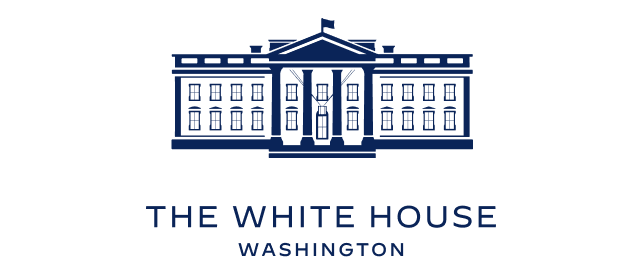What They Are Reading in the States: Biden-Harris Administration is Investing in America; Local Communities Reap Benefits
The Biden-Harris Administration is delivering historic investments to communities across the country, growing our economy from the middle-out and bottom-up, not top-down. This week, as a result of President Biden’s Investing in America agenda, multiple manufacturing companies announced new investments that will create hundreds of good-paying jobs, and the Administration announced significant actions to implement the historic legislation President Biden signed into law that is creating economic opportunity for hardworking American families.
Prompted by the Inflation Reduction act, this week LG Energy and QCELLS both announced expansions of their manufacturing facilities in Arizona and Georgia, which will create hundreds of good-paying jobs. Vice President Kamala Harris announced $197 million to support wildfire resilience across 22 states, putting people to work and protecting communities. And the Department of Transportation announced investments in new programs across 33 states that will improve transportation infrastructure and safety.
Also this week, the White House announced that President Biden will be kicking off an Administration-wide, three-week Investing in America tour that will highlight how the President’s economic policies are benefiting hardworking Americans across the country and reinforce what’s at stake if MAGA Republicans in Congress get their way and repeal the Inflation Reduction Act and slash funding for manufacturing, research, and innovation.
A sampling of the local coverage on President Biden’s investments across the country:
AZ: Arizona Central: Korean electronics giant LG announces huge expansion of plans for battery factory in Queen Creek
“LG Energy Solution said it will quadruple its initial budget for a battery manufacturing plant in Queen Creek and now plans to spend $5.5 billion for the project, which will create thousands of jobs and could become the largest stand-alone battery complex in North America. LG Energy Solution said demand for batteries is surging, and the company expects its 2023 revenue to increase by 25% to 30%. The company attributed the demand increase in part to federal tax credits in the Inflation Reduction Act, which was passed by Congress last year.”
GA: Atlanta Journal Constitution: Solar parts supplier for Qcells building $147M Cartersville plant
“In a statement on HAGA’s plant, Biden connected the dots between the IRA and the new investment in Georgia. The IRA provides $10 billion in tax credits for building new solar manufacturing facilities, plus billions more for manufacturers to make components for solar panels, batteries, and wind turbines in the U.S., among a host of other clean energy incentives. ‘With the support of Senators Warnock and Ossoff and Georgia House Democrats, clean energy manufacturing announcements in Georgia are creating thousands of good-paying jobs making solar panels and components here at home and tackling the climate crisis,’ Biden said in a statement.”
NC: Spectrum (North Carolina statewide): President Biden to kick off 'Investing in America' tour in N.C. next week
“President Joe Biden plans to visit North Carolina Tuesday as part of a three-week administration-wide "Investing in America" tour. The White House says Biden will travel to Durham to visit Wolfspeed, a producer of semiconductors and their key components. Wolfspeed recently announced a $5 billion investment to build its North Carolina facility and the creation of 1,800 jobs.”
KY: Louisville Courier Journal: These 4 flood-prone underpasses in Louisville are getting 'smart technology'
“The U.S. Department of Transportation is awarding Louisville nearly $2 million to improve its aging traffic management system at four of its most dangerous, flood-prone underpasses, local and federal officials announced Tuesday. The $1,999,481 grant comes thanks to the Strengthening Mobility and Revolutionizing Transportation program that was established through the bipartisan Infrastructure Investment and Jobs Act. Congress passed and President Joe Biden signed the $1.2 trillion bill into law in 2021.”
NY: The Daily Sentinel: NY Thruway awarded $1.5M federal grant for drone program
“The New York State Thruway Authority will continue its drone program with the support of a $1.5 million grant from the U.S. Department of Transportation. The Biden administration announced Tuesday that more than $94 million has been awarded to 59 entities through the Strengthening Mobility and Revolutionizing Transportation program, which created by the Infrastructure Investment and Jobs Act.”
CA: Los Angeles Times: Harris unveils $197 million for wildfire resilience as California’s fire season looms
“Vice President Kamala Harris detailed $197 million in new federal grants on Monday to help fortify high-risk communities against wildfires. More than 100 communities scattered across 22 states and seven tribes will receive funding to supplement pay for wildland firefighters and provide housing for fire personnel as part of the Biden administration’s wildfire defense grant program.”
NM: Source New Mexico: Feds to send nearly $200 million to help communities prepare for wildfires
“The Biden administration will send $197 million from the 2021 bipartisan infrastructure law to help communities prepare for wildfires this summer, Vice President Kamala Harris and other administration officials said Monday. The funding represents the first round of a new $1 billion Community Wildfire Defense Grant program authorized under the $1.2 trillion infrastructure bill that President Joe Biden signed in November 2021.”
NV: KUNR (NPR Reno, NV): Wildfire projects in Mountain West receive new federal funds
“The money comes from the department’s new Community Wildfire Defense Grant program, a $1 billion initiative funded by President Biden’s bipartisan infrastructure law. The first round of funding is aimed at 100 projects in 22 states and seven tribes, with most plans focused on clearing flammable brush near homes and businesses, and in forests. Communities are increasingly at-risk as the climate changes, Vice President Kamala Harris said in a call with reporters on March 20.”



